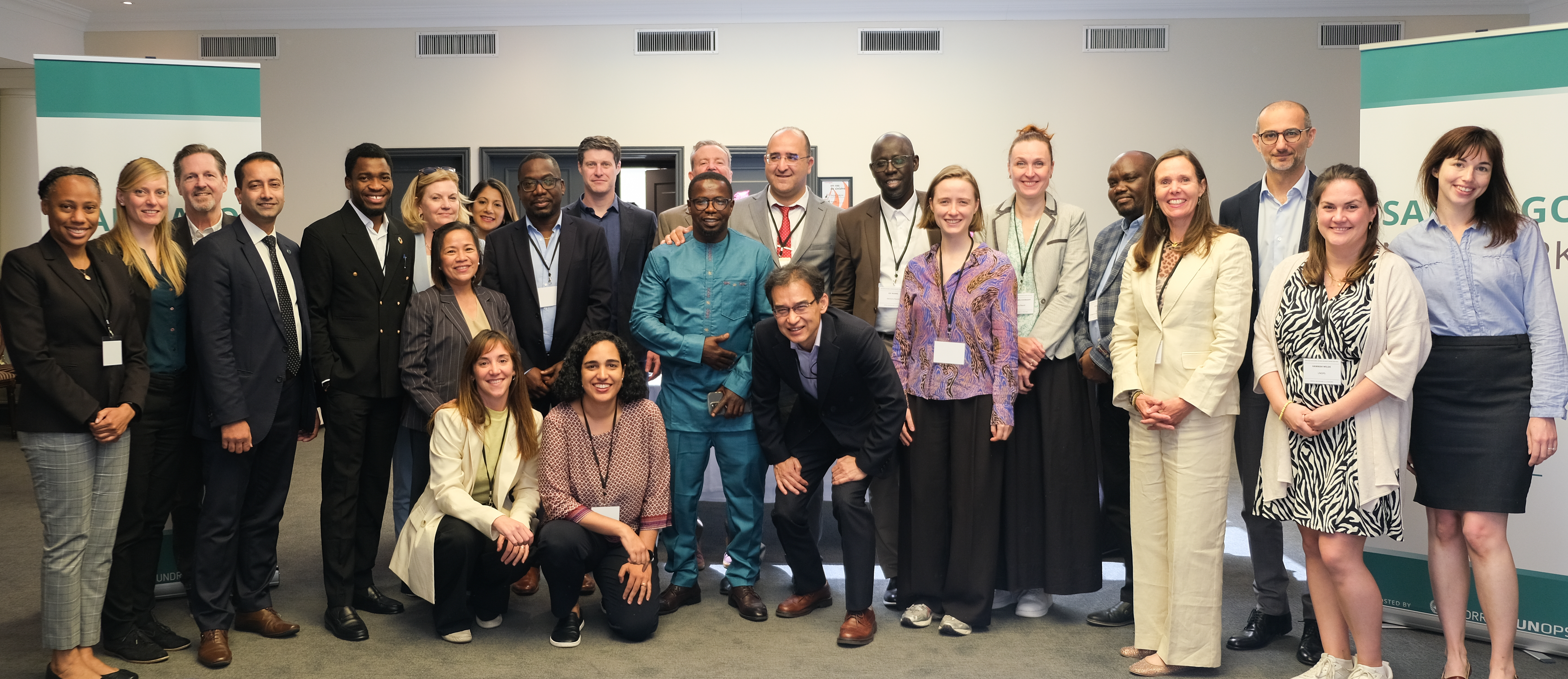Technical assistance for those at the frontlines of climate-induced loss and damage – moving ahead in building the Santiago network
The second meeting of the Advisory Board of the Santiago network was held in Geneva, Switzerland, on 4 July 2024, following two days of informal consultations.
In addition to the Advisory Board members and representatives, the consultations and formal meeting were attended virtually and in-person by observers from Parties, intergovernmental organizations, non-governmental organizations, and the UN system, as well as the interim secretariat, representatives from the incoming COP Presidency (Azerbaijan), UNFCCC, and UNDRR and UNOPS as co-hosts of the Santiago network secretariat.
The meeting focused on advancing the network so that those at the frontlines of the climate crisis can start receiving support as soon as possible. During the discussions, members and observers highlighted the importance of an inclusive approach that considers the needs of vulnerable groups who are disproportionately affected by the impacts of climate change and face greater challenges in accessing support and resources.
“The technical assistance should be provided in a demand-driven manner and through a country-driven process, taking into account the needs of vulnerable people, indigenous peoples and local communities. As an Advisory Board member, I am also aware of our other task to facilitate the development, provision and dissemination of, and access to, knowledge and information on loss and damage, including comprehensive risk management approaches, at the regional, national and local level,” said Rachid Tahiri, an Advisory Board member from the Africa Group.
The network aims to play an important role within the context of existing efforts and extensive work being done in the area of loss and damage by providing technical assistance and serving as a network to connect those seeking assistance with the right resources and organizations, bodies, networks and experts. In fulfilling its functions, it will also build knowledge and capacities across regional, national and local levels.
“The work of the Advisory Board in this initial phase of the implementation of the Santiago network is very dense as we make sure that we progress on several crucial guidelines for the network in parallel. I am happy to see us advancing in such a constructive manner during this second meeting. It is important that we further implement the Santiago network in a way that it offers a clear added value and maximizes the potential for synergies within the evolving support landscape for averting, minimizing, and addressing loss and damage,” said Leona Hollasch, an Advisory Board member from the Western European and Other States Group.
During the meeting, progress was made on the development of guidelines and processes for the network’s next steps. The Advisory Board approved the guidelines on the membership of organizations, bodies, networks and experts – a significant step towards building the membership of the network.
The decisions from this meeting mark important progress towards enhancing the capacities of vulnerable groups, communities and countries to avert, minimize and address loss and damage associated with the adverse impacts of climate change and putting those most affected at the centre of this work.
The next meeting of the Advisory Board will take place from 4 - 6 September 2024 in Bonn, Germany and will build on the ongoing work of the network.

The Santiago network's second Advisory Board meeting in Geneva, Switzerland.